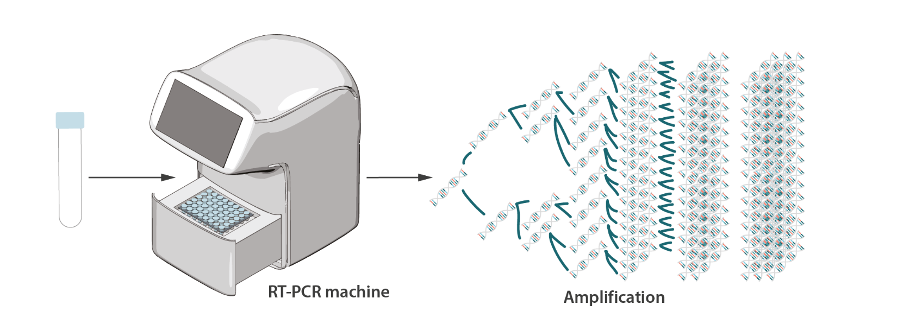Molecular biology has revolutionised our understanding of life and opened up a world of possibilities in scientific research and medical diagnosis. One of the most widely used techniques in this field is quantitative real-time PCR (qPCR), which combines the accuracy of DNA amplification with the ability to quantify the results in real time.
The possibilities offered by qPCR are fundamental for the development of therapeutic oligonucleotides to address rare diseases as it allows the precise assessment of the efficacy and specificity of therapeutic oligonucleotides in blocking defective genes or modulating biological pathways relevant to these diseases. In addition, it facilitates detailed monitoring of the patient’s response to treatment, allowing personalised adjustments to optimise therapeutic outcomes in the management of this type of disease.
Origin
The qPCR is an evolution of the conventional PCR that was invented by Dr. Kary Mullis in 1983. While conventional PCR amplifies DNA sequences of interest, qPCR goes one step further by allowing precise quantification of the amount of DNA amplified during the process. This is achieved through the use of specific primers, an enzyme called DNA polymerase and real-time detection of the fluorescence generated during amplification.

Applications
qPCR has a wide range of applications in different fields:
- Medical diagnostics: used to detect and quantify viral load in infectious diseases such as COVID-19 and HIV, as well as for the diagnosis of genetic diseases.
- Scientific research: it is essential in gene expression studies, gene mutation analysis, biomarker identification and more.
- Food quality control: assists in the detection of pathogens in food and verifies the authenticity and safety of food products.
Given this range of possibilities, we can highlight the advantages of qPCR such as its sensitivity and specificity, the speed with which results are obtained and its capacity for automation. However, the need for careful experimental design and expert interpretation of the results are important considerations.
In the field of precision medicine, qPCR plays a crucial role by enabling the accurate detection and quantification of genetic biomarkers associated with specific diseases. This technique is used to analyse altered gene expression, identify genetic mutations and determine unique genetic profiles in patients.
In the diagnosis of rare diseases, where early and accurate identification is essential, qPCR provides a very useful tool by allowing the detection of specific genetic mutations even in samples with limited amounts of DNA, facilitating rapid and accurate diagnosis to improve the care and treatment of patients with rare diseases.
Sources:
Real-Time PCR Basics | Thermo Fisher Scientific – EN
Real-time qPCR | RNA/miRNA quantification
qPCR Analysis, How a qPCR Machine Works and qPCR Protocol | Technology Networks
Detection of COVID 19 virus by real-time RT PCR | IAEA
Commissioning of a thermal cycler

 Español
Español
